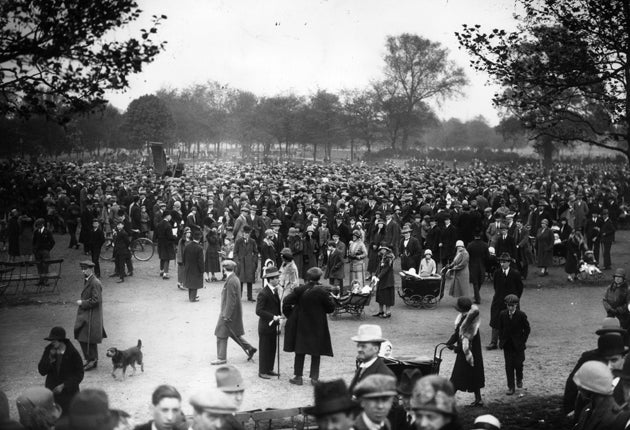The Timeline: Strikes

Your support helps us to tell the story
From reproductive rights to climate change to Big Tech, The Independent is on the ground when the story is developing. Whether it's investigating the financials of Elon Musk's pro-Trump PAC or producing our latest documentary, 'The A Word', which shines a light on the American women fighting for reproductive rights, we know how important it is to parse out the facts from the messaging.
At such a critical moment in US history, we need reporters on the ground. Your donation allows us to keep sending journalists to speak to both sides of the story.
The Independent is trusted by Americans across the entire political spectrum. And unlike many other quality news outlets, we choose not to lock Americans out of our reporting and analysis with paywalls. We believe quality journalism should be available to everyone, paid for by those who can afford it.
Your support makes all the difference.c.115BC
Egyptian workers' strike, Egypt
The first recorded strike took place in ancient Egypt. Artisans working on the royal necropolis lived at Deir el-Medina, a nearby labourers' village. Angered by poor conditions and reduced grain rations, the workers staged a successful "sit-in", inside the royal temples in the Valley of the Kings.
Spring 1768
Sailors' strike, London
The first use of the term "strike" was found back in the 18th century. Thousands of sailors withdrew their labour by lowering – or "striking"– ships' sails. Protesting at their low wages in a time of rising prices, they also marched on St James's Palace.
July 1877
The Great Railroad Strike, United States
In July, a railroad workers' walk-out snowballed into the first nationwide strike in America's history. Wages had been slashed during the Long Depression, but when workers in West Virginia went on strike, their actions were soon followed across the country. More than half of America's railways closed, with protests soon turning violent.
June 1922
The Herrin Massacre, Herrin, Illinois
Protesting coal miners, armed with guns and farm implements, surrounded a mine full of non-union scabs. They were promised safe passage if they surrendered. Instead, the scabs were marched into the woods, where they were beaten and about 20 of them shot and killed.
May 1926
The General Strike, UK
The first general strike in Britain was begun by miners, with other industries joining in an act of solidarity. On 4 May, the Trades Union Congress (TUC) called for a general strike in response to mine owners' plans to reduce wages and increase hours. Middle-class volunteers sprang into action to keep the country running, and the TUC cancelled the strike on 11 May.
5 March 1984 – 3 March 1985
The Miners' Strike, UK
The closure of a pit near Barnsley prompted miners' walkouts all over Yorkshire. Within a week, amid news of mass pit closures, half of all miners had downed tools. Thanks to stockpiled fuel at power stations, it was months before the strike had an impact, and Margaret Thatcher held firm for a year, eventually defeating the unions.
March and May 2010
British Airways strikes, UK
The BA cabin crew union, Unite, is planning four different five-day strikes in May and June as part of an ongoing dispute over cost-cutting plans. They follow strikes in March, which prevented hundreds of flights from taking off and are thought to have cost BA around £45m.
Join our commenting forum
Join thought-provoking conversations, follow other Independent readers and see their replies
Comments